Like any other appliance, your air conditioner needs extra care to bring the best performance. Air conditioners tend to struggle when not correctly maintained.
Even the best air conditioners have problems, such as the lid not closing completely. For this article, we researched why an air conditioner lid might not close, along with other common problems and solutions.
The motor is probably not the issue when an air conditioner's lid is not completely closed. When you turn off the unit, don't include the main switch.
Use the remote instead. After that, wait for a moment for the lid to close completely. You should call your service provider if this doesn't solve the issue.
As the sun hits your house, you may experience a temperature rise and feel hot. This is when your air conditioning unit is needed the most.
As you keep reading, we will detail the features and common problems of air conditioning units.
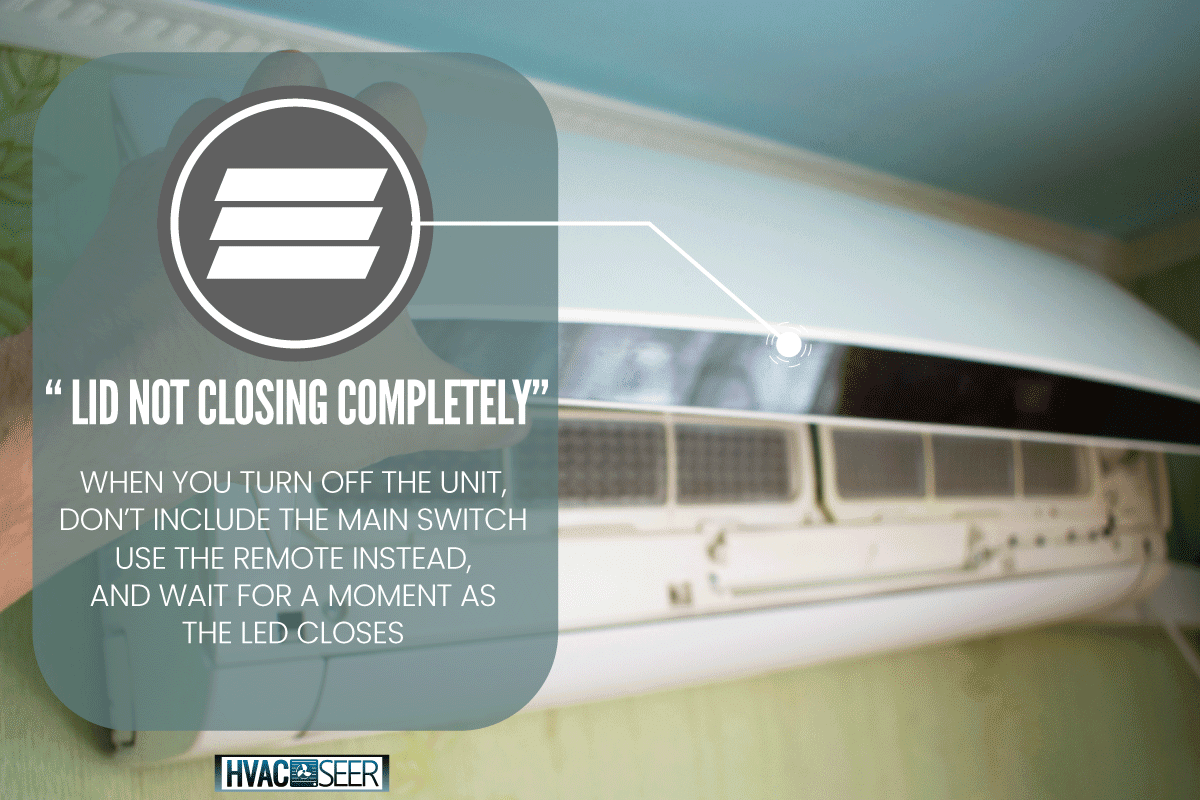
What Are Some Common Problems With An Air Conditioning Unit?
Air conditioner repairs can often be expensive, so it is wise to schedule unit maintenance and system tune-ups so you may experience the best air conditioner performance.
Knowing common air conditioning issues and problems is essential so you can take preventive measures to avoid experiencing expensive repairs.
Dirty Air Filter
A clogged, dirty air filter limits the quality of the airflow, thus diminishing an air conditioner's efficiency and lessening its capacity to cool the air.
If you don't clean the filter, either split type or window type, make sure you check it occasionally.
You should check the manual and filter recommendations for central air conditioning units if replacement is needed.
Faulty Sensor
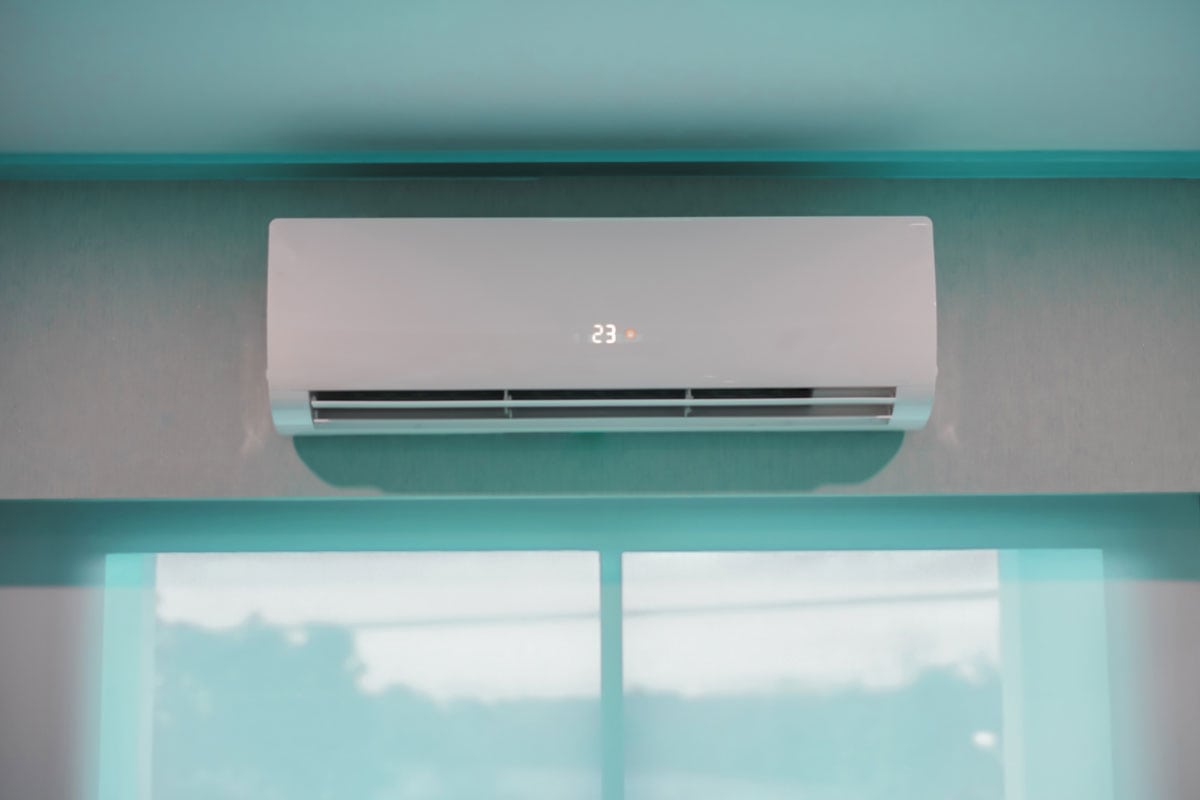
Air conditioners control moisture and provide cool air. Over time, specific issues may be encountered that make it unable to perform well.
HVAC systems have temperature sensors that warrant precise outcomes and reduce possible wear and tear. If everything works properly, you need not worry about repairs and maintenance.
However, once the sensor starts to malfunction, this is the start of another problem.
You can tell that the sensor is failing if:
- The air conditioner won't turn off as it reaches the desired temperature set on the thermostat. If the sensor fails to read the temperature, the air conditioner will continue to run. In turn, higher electric bills are waiting for you.
- An air conditioner's on-and-off cycle is noted instead of leaving off as the desired temperature is reached. A faulty sensor may misread the temperature, leading to unit failure.
- Monthly electric bills keep on rising higher than expected. Let your technician check your unit to help you save money.
Leaks
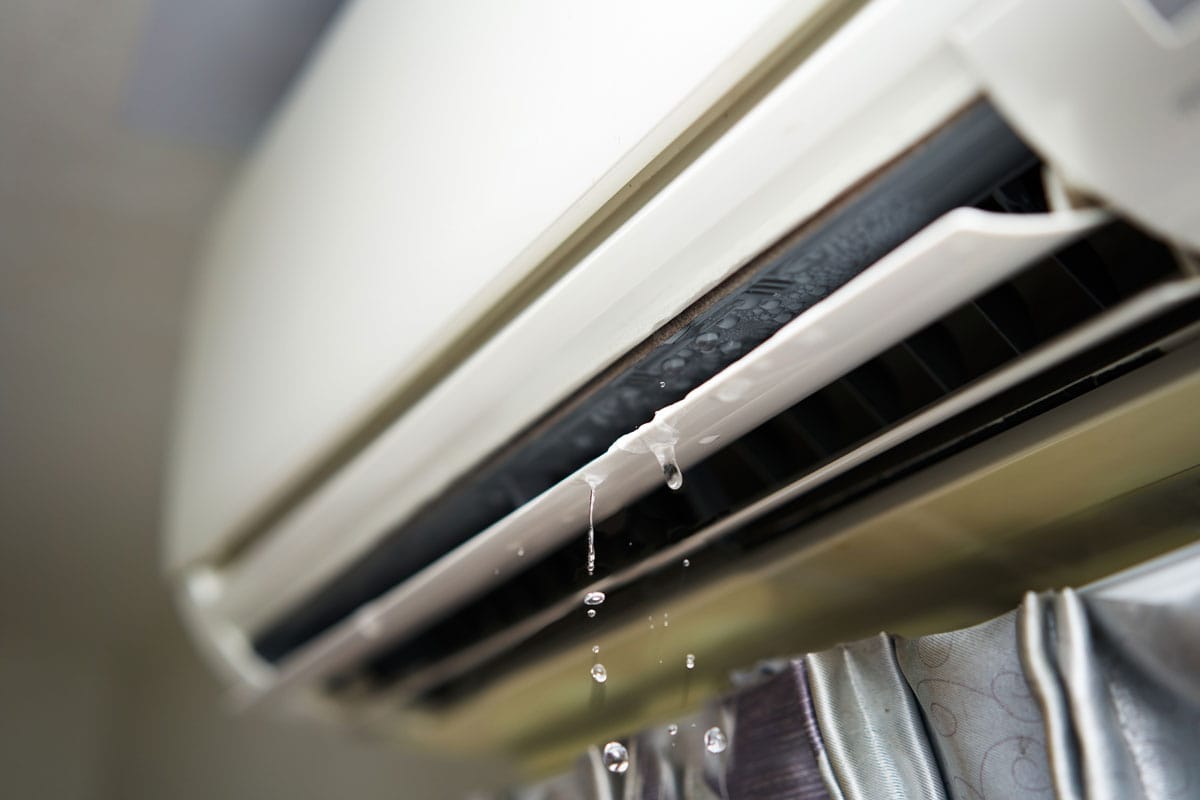
An air conditioner is an essential appliance, especially in most tropical countries. It should run constantly to keep you comfortable and ventilated throughout your daily routine.
Air conditioners can develop issues due to altering weather conditions, continuous usage, and lack of maintenance. All of these factors affect an air conditioner and can lead to leaks.
You may notice possible causes of leaks: dirty filters, air leaks, clogged drain lines, improper installation, and more.
You may consider these helpful tips when your air conditioner is consistently experiencing water drips.
- Check the filters and make sure they are clean. If not, clean them to help solve your problem.
- Check the pipes and unclog them if there is any obstruction. Once cleared, the water will flow thoroughly, and leakage is no longer a problem.
- The installation should be done correctly. If you are unsure what you are doing, you may contact your technician to do it for you.
Noise And Vibration
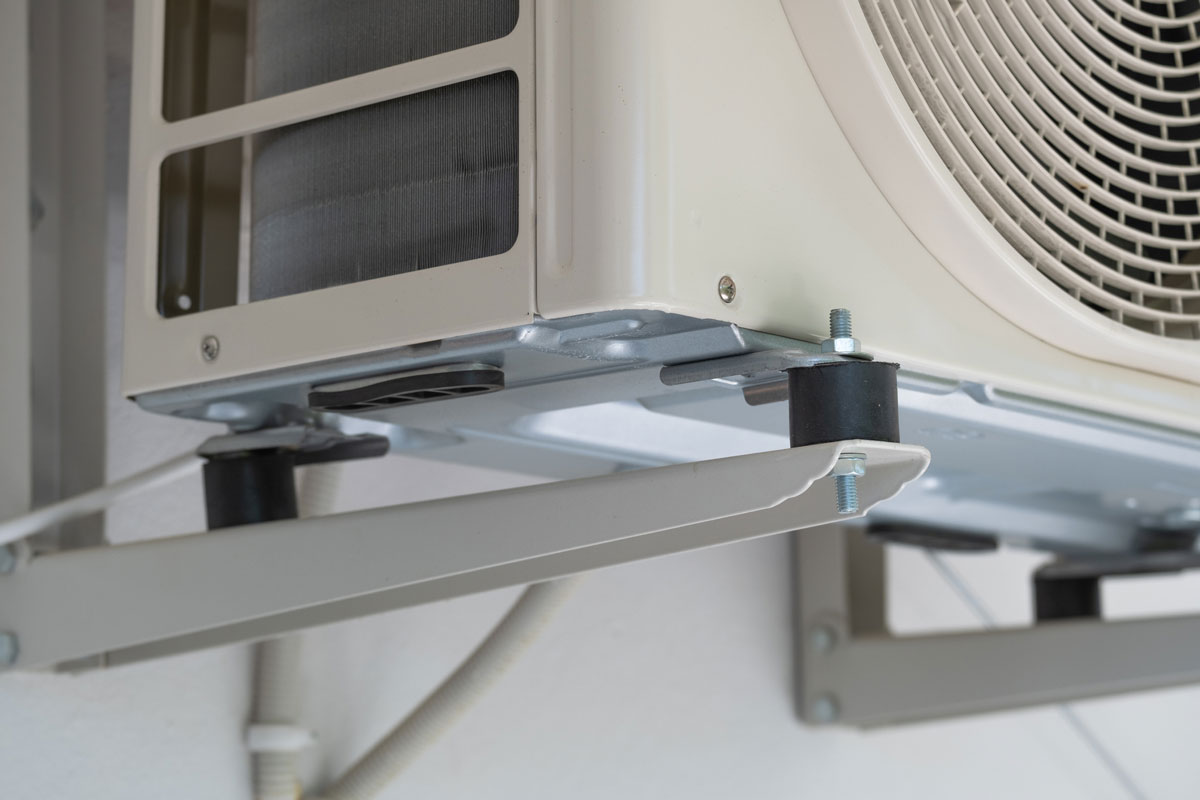
Since you rely on your air conditioning unit, you may be in trouble when you hear unusual vibrations and noises.
If you ignore this issue, the noise could become a significant problem. The noises signal that something in the unit might need a tune-up, replacement, or repair. The sooner you determine the source of noise, the better.
How To Shut Down The Air Conditioner To Completely Close The Lid?
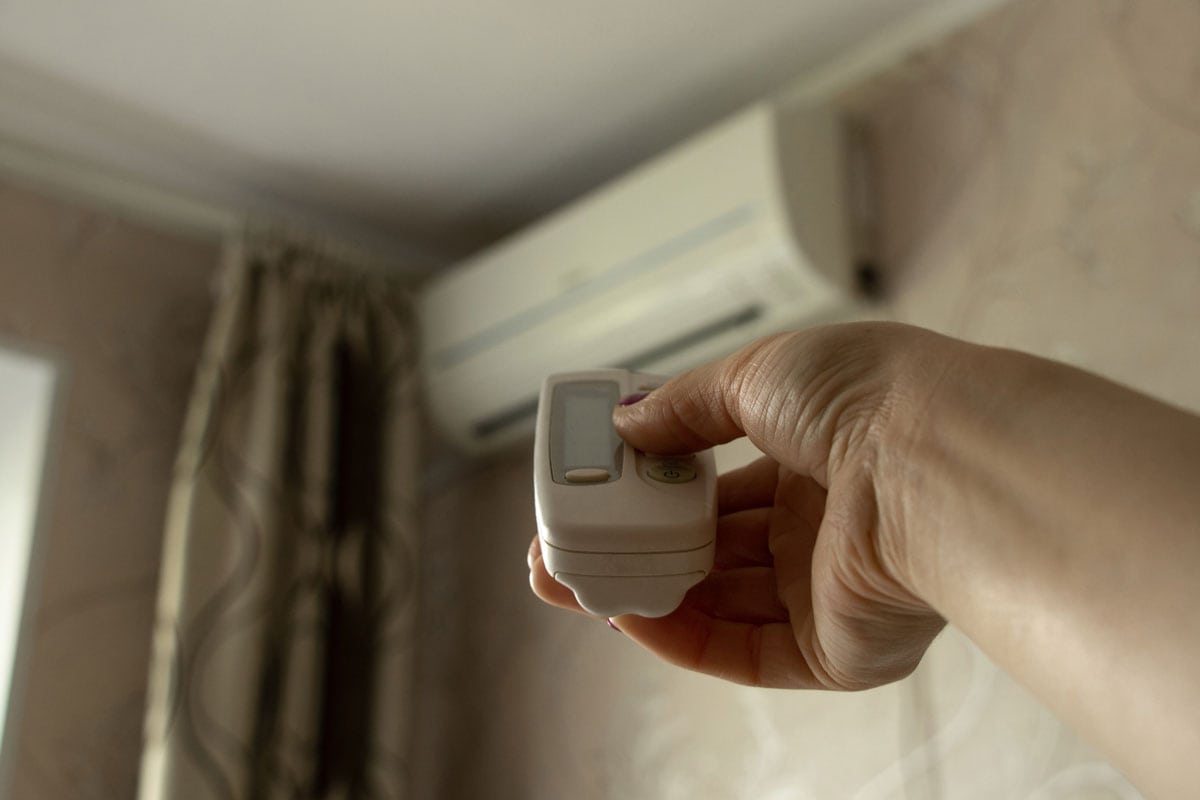
When the winter approaches, it's time to turn on the furnace and the boilers. Your air conditioner should be shut down until the spring.
However, you do not want to let your air conditioner set aside alone after being used several times.
Unless a heat pump is used for your comfort, which is both cooling and heating, you need to take steps to shut down your air conditioner during winter properly. In this way, you can protect and keep it in shape.
We have unlocked steps to prolong the proper function of your air conditioner so you will not buy a new one.
Step 1. Schedule Needed Repairs
Any air conditioner should receive an appropriate fix, even if it's nearly winter.
Delaying a repair could lead to the worsening conditions of the unit, and you will be stuck with an inefficient cooling system. It is best to schedule a repair before you do anything.
Step 2. Turn It Off
This does not mean setting the temperature higher.
Any mark of warmth might suddenly turn off the air conditioner, which leads to severe damage. It may draw water and snow inside of it.
To avoid this situation, shut off the air conditioner altogether. The only way to do this is to find the breaker and switch it off.
Step 4. Clean From The Outside
Brush off leaves, dirt, and dust from the condenser unit. Take a low-pressure hose and wash the outside cabinet. Make sure that there is no debris near the unit.
Step 5. Cover The Air Conditioner
Finally, you should place a waterproof cover over the unit to protect the inside from snow, water, and other objects.
You may also use a tarp if it is waterproof and completely covers the unit. You can comfortably protect your air conditioner without any concern.
Check out this AC mesh cover on Amazon.
Reset Your Air Conditioner In 3 Steps
Maybe it's time to reset your air conditioner to close the lid completely. If you are uncomfortable doing this, contact your technician for assistance. Otherwise, follow the instructions given below.
1. Turn Off The Air Conditioner
You will start with the breaker—the breaker powers your unit. Flip the switch to your air conditioner connected outside the turn-off setting.
2. Locate The Reset Button
Air conditioning units have a reset button. Check for the small red button. If you can't locate it, grab your manual and look for the switch. You may also search it online for a quick reference.
Once you find it, hold the button for three to five seconds and release it.
3. Restore
Your air conditioner should now restore its power. Flip all the switches, including the breaker.
Next, you can set the thermostat to your desired temperature setting. Your air conditioner should start up in a few minutes.
You can place your hands over the vents to ensure cold air is blowing from the unit.
What Happens When You Reset?
Your worst nightmare during the hot season is when your air conditioner quits, especially if you are not ready to buy a new one. You can take the steps mentioned above to reset your air conditioner before calling for help.
So, what happens when you reset?
A reset could be a solution if your air conditioner is running but blowing hot air or the blower won't work even after setting the thermostat.
This is comparable to restarting a computer when dealing with specific problems.
Sometimes, you need to reboot the HVAC system. This involves blocking the power and the thermostat to turn it back on.
In most cases, the air conditioner will function correctly after a reset.
In Conclusion
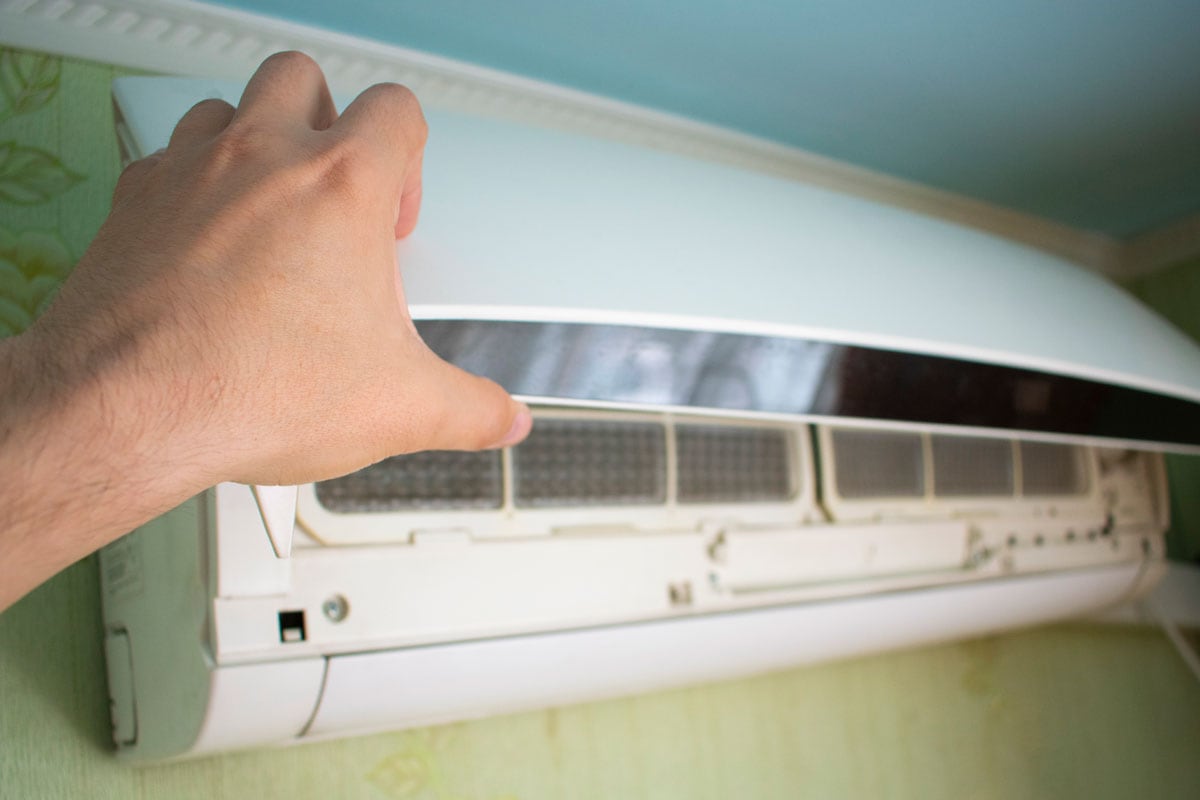
Generally, you should always address air conditioning problems as soon as possible to avoid major damage. Minor issues could lead to significant problems in the future.
So, it would be better for you to figure out the cause of the problem first and begin with your solution.
An air conditioner lid that won't close signals an issue with your unit. Checking with the experts could give you quality airflow.
If you enjoyed reading this article, you might want to visit other related posts:

